What is Mindfulness-Based Relationship Enhancement Therapy?
Mindfulness-Based Relationship Enhancement (MBRE) is an innovative therapeutic approach that combines the principles of mindfulness with relationship-focused interventions. This therapy is designed to help couples and individuals enhance their relationships by cultivating present-moment awareness, emotional regulation, and compassionate communication. MBRE builds upon the foundation of Mindfulness-Based Stress Reduction (MBSR) and adapts it specifically for relationship contexts.
At its core, MBRE teaches participants to bring mindful attention to their interactions, emotions, and thought patterns within their relationships. By fostering a non-judgmental and accepting stance towards oneself and one’s partner, MBRE aims to deepen connection, increase relationship satisfaction, and promote overall well-being for both individuals in a couple.
Who Developed Mindfulness-Based Relationship Enhancement and What Inspired Its Creation?
Mindfulness-Based Relationship Enhancement was developed by Dr. James W. Carson and his colleagues at Duke University Medical Center. Dr. Carson, a clinical health psychologist and mindfulness researcher, has a background in both Eastern meditative practices and Western psychology. His interest in integrating mindfulness into relationship therapy stemmed from his own experiences with meditation and his observations of its potential benefits for couples.
Dr. Carson’s journey began with his doctoral research at the University of North Carolina at Chapel Hill, where he studied the effects of mindfulness meditation on chronic pain patients. This work, conducted under the guidance of Dr. Karen Gil, laid the foundation for his future explorations into mindfulness-based interventions.
The development of MBRE was influenced by several key factors:
- Personal Practice: Dr. Carson’s personal meditation practice and his experiences teaching mindfulness to various populations.
- Clinical Observations: Noticing the potential for mindfulness to enhance relationship dynamics in his clinical work with couples.
- Research Findings: Drawing on the growing body of evidence supporting mindfulness-based interventions for individual well-being and stress reduction.
- Collaborative Efforts: Working closely with his wife, Dr. Kimberly Carson, a yoga therapist and mindfulness instructor, to integrate mind-body practices into relationship enhancement.
- Interdisciplinary Approach: Incorporating insights from attachment theory, cognitive-behavioral therapy, and positive psychology into the MBRE framework.
The primary collaborators in the development of MBRE included:
- Dr. Kimberly Carson: Co-developer and facilitator of MBRE programs.
- Dr. Karen Gil: Mentor and advisor during Dr. Carson’s doctoral studies.
- Dr. Donald Baucom: Expert in couples therapy and relationship interventions at the University of North Carolina at Chapel Hill.
How Did Cultural and Economic Forces Influence the Development of MBRE?
The development of Mindfulness-Based Relationship Enhancement in the early 2000s coincided with several cultural and economic trends that created a fertile ground for its growth:
- Rising Divorce Rates: The high divorce rates in Western countries created a demand for innovative approaches to relationship enhancement and couples therapy.
- Mindfulness Boom: The increasing popularity of mindfulness and meditation in Western culture, partly fueled by the success of Mindfulness-Based Stress Reduction (MBSR) programs.
- Work-Life Balance Concerns: Growing awareness of work-life balance issues and their impact on relationships, particularly in dual-career households.
- Mental Health Awareness: Increased public discourse around mental health and well-being, reducing stigma and encouraging people to seek help for relationship issues.
- Integration of Eastern and Western Practices: A growing openness to integrating Eastern philosophical and meditative practices with Western psychological approaches.
- Research Funding: Increased funding for mindfulness research, particularly in the fields of neuroscience and clinical psychology, providing empirical support for mindfulness-based interventions.
- Technology and Relationships: The impact of digital technology on relationships, creating new challenges and a need for intentional presence and connection.
- Self-Help Culture: The growth of the self-help industry and a cultural emphasis on personal growth and self-improvement.
These cultural and economic forces created both opportunities and challenges for the development of MBRE. On one hand, there was a receptive audience for mindfulness-based approaches and a recognized need for effective relationship interventions. On the other hand, the proliferation of self-help programs and alternative therapies meant that MBRE needed to distinguish itself through rigorous research and evidence-based practices.
What Clinical Practices Did MBRE Address or Improve Upon?
Mindfulness-Based Relationship Enhancement emerged as a response to several limitations and challenges in existing clinical practices:
- Individual Focus in Mindfulness Interventions: While mindfulness-based programs like MBSR were effective for individual stress reduction, they didn’t specifically address relational dynamics. MBRE adapted mindfulness practices for couples, focusing on shared experiences and partner-focused exercises.
- Lack of Present-Moment Awareness in Traditional Couples Therapy: Many traditional approaches to couples therapy focused on past events or future planning. MBRE introduced a strong emphasis on cultivating present-moment awareness within the relationship context.
- Overemphasis on Problem-Solving: Some couples therapy approaches primarily focused on problem-solving and conflict resolution. MBRE introduced a more balanced approach that included cultivating positive experiences and appreciation alongside addressing challenges.
- Limited Integration of Body-Based Practices: MBRE incorporated yoga and other body-based mindfulness practices, addressing the mind-body connection in relationship dynamics more comprehensively than many existing approaches.
- Insufficient Focus on Self-Regulation: While many couples therapy models addressed communication skills, MBRE placed a stronger emphasis on emotional self-regulation through mindfulness practices as a foundation for improved interaction.
- Lack of Structured Home Practice: MBRE introduced a more structured approach to home practice for couples, encouraging them to engage in shared mindfulness exercises between therapy sessions.
- Limited Attention to Positive Relationship Aspects: MBRE emphasized cultivating and savoring positive relationship experiences, addressing a gap in many deficit-focused therapy models.
How Has MBRE Been Integrated into Other Models or Influenced the Field of Psychotherapy?
Since its development, Mindfulness-Based Relationship Enhancement has influenced the field of psychotherapy and relationship counseling in several ways:
- Integration with Existing Couples Therapy Models: Elements of MBRE have been incorporated into other evidence-based couples therapy approaches, such as Emotionally Focused Therapy (EFT) and Integrative Behavioral Couple Therapy (IBCT).
- Mindfulness in Relationship Education: MBRE principles have been adapted for use in relationship education programs and premarital counseling, emphasizing the importance of mindfulness skills in building and maintaining healthy relationships.
- Expansion to Different Populations: The MBRE approach has been adapted for use with diverse populations, including same-sex couples, older adults, and couples dealing with chronic illness or pain.
- Influence on Individual Therapy: The relational focus of MBRE has influenced how mindfulness is applied in individual therapy contexts, encouraging therapists to consider the interpersonal aspects of mindfulness practice.
- Research Directions: MBRE has sparked new lines of research investigating the role of mindfulness in relationship functioning, attachment processes, and interpersonal neurobiology.
- Training Programs: Elements of MBRE have been incorporated into training programs for couples therapists and relationship coaches, emphasizing the importance of mindfulness skills for both clinicians and clients.
- Online Adaptations: The principles of MBRE have been adapted for online and app-based relationship enhancement programs, making mindfulness-based relationship interventions more accessible to a wider audience.
What is the Timeline of MBRE’s Creation, Dissemination, and Development?
The timeline of Mindfulness-Based Relationship Enhancement’s development and dissemination includes the following key events:
- Late 1990s: Dr. James Carson begins exploring the integration of mindfulness practices with relationship enhancement during his doctoral studies.
- 2001: Initial pilot studies of MBRE conducted at Duke University Medical Center.
- 2004: Publication of the first major study on MBRE in the Journal of Marital and Family Therapy, demonstrating its effectiveness in enhancing relationship satisfaction and individual well-being.
- 2006: MBRE training workshops for therapists and counselors begin, expanding the reach of the approach.
- 2007: Publication of additional research on MBRE’s effects on stress coping in the Journal of Clinical Psychology.
- 2010: Expansion of MBRE to include adaptations for specific populations, such as couples coping with chronic pain.
- 2012: Integration of MBRE principles into mindfulness-based teacher training programs.
- 2015: Publication of long-term follow-up studies, demonstrating the lasting effects of MBRE interventions.
- 2018: Development of online MBRE programs and resources, increasing accessibility.
- 2020: Adaptation of MBRE for virtual delivery in response to the COVID-19 pandemic.
- 2022: Publication of meta-analyses confirming the effectiveness of mindfulness-based interventions for relationship enhancement.
How Does MBRE Conceptualize Trauma, the Unconscious, and Identity?
Mindfulness-Based Relationship Enhancement offers unique perspectives on trauma, the unconscious, and identity within the context of relationships:
- Trauma:
- MBRE views trauma as experiences that disrupt one’s sense of safety, connection, and presence in relationships.
- It emphasizes the role of mindfulness in creating a safe space to process traumatic experiences within the relationship context.
- MBRE teaches couples to recognize trauma responses in themselves and their partners, fostering compassion and understanding.
- The approach encourages gradual exposure to triggering situations through mindful awareness, promoting healing and integration.
- The Unconscious:
- MBRE conceptualizes the unconscious as patterns of thinking, feeling, and behaving that operate outside of immediate awareness.
- It emphasizes bringing unconscious relational patterns into conscious awareness through mindful observation.
- The approach teaches couples to recognize unconscious reactions and habitual responses in their interactions.
- MBRE encourages curiosity about unconscious processes, fostering a non-judgmental exploration of underlying motivations and fears.
- Identity and Self:
- MBRE views identity as fluid and interdependent, shaped by relational experiences and cultural contexts.
- It emphasizes the development of a “relational self” that is aware of one’s impact on and connection with others.
- The approach encourages individuals to cultivate a sense of self that is both distinct and intimately connected to their partner.
- MBRE teaches couples to recognize how their individual identities contribute to and are shaped by the relationship dynamic.
- It promotes a balanced sense of self that can maintain individuality while fostering deep connection and intimacy.
What are the Core Interventions and Techniques in MBRE?
Mindfulness-Based Relationship Enhancement employs a variety of interventions and techniques to help couples cultivate mindfulness and enhance their relationships:
- Mindful Breathing for Couples:
- Partners practice synchronized breathing exercises to foster connection and co-regulation.
- Techniques include alternating leader-follower breathing patterns and back-to-back breathing awareness.
- Loving-Kindness Meditation:
- Guided meditations focused on cultivating feelings of love, compassion, and goodwill towards oneself and one’s partner.
- Practices include visualizations and silent repetition of phrases expressing care and positive intentions.
- Mindful Touch Exercises:
- Non-sexual touch exercises designed to increase sensory awareness and intimate connection.
- Includes practices like mindful hand-holding, gentle face-touching, and back-to-back sitting meditations.
- Mindful Listening and Speaking:
- Structured exercises to enhance communication through present-moment awareness.
- Techniques include timed speaking and listening practices with mindful pauses for reflection.
- Body Scan for Couples:
- Guided body awareness exercises performed individually or in tandem with a partner.
- Helps couples become more attuned to physical sensations and emotional states within themselves and each other.
- Mindful Conflict Resolution:
- Techniques for bringing mindfulness to moments of disagreement or tension.
- Includes practices like “pause and breathe” during arguments and mindful expression of needs and feelings.
- Gratitude and Appreciation Practices:
- Daily rituals and exercises focused on cultivating and expressing gratitude towards one’s partner.
- Includes practices like “three good things” sharing and written appreciation letters.
- Mindful Intimacy Exercises:
- Practices designed to bring mindful awareness to physical and emotional intimacy.
- Includes exercises like mindful gazing, sensate focus techniques, and mindful exploration of desire and boundaries.
- Shared Mindfulness Activities:
- Engaging in everyday activities (e.g., eating, walking) with heightened awareness and presence as a couple.
- Encourages partners to share observations and experiences during these activities.
- Loving-Kindness Touch:
- A practice combining elements of loving-kindness meditation with gentle, intentional touch.
- Partners take turns offering and receiving caring touch while cultivating feelings of warmth and compassion.
- Mindful Reflection on Relationship Patterns:
- Guided exercises to help couples identify and explore recurring patterns in their relationship with curiosity and non-judgment.
- Includes practices like “relationship weather reports” and mindful journaling about interactions.
- Compassionate Self-Awareness Exercises:
- Practices designed to increase self-compassion and awareness of one’s own emotional states and needs within the relationship.
- Includes self-compassion meditations and exercises to identify and express personal boundaries.
- Mindful Goal-Setting for Couples:
- Techniques for setting and working towards shared relationship goals with mindful intentionality.
- Includes practices like visualization exercises and mindful action planning.
- Mindfulness-Based Stress Reduction for Couples:
- Adaptation of classic MBSR practices for partnership contexts.
- Includes joint yoga practices, partner-assisted stretching, and co-meditation sessions.
- Mindful Celebration of Relationship Milestones:
- Practices to bring heightened awareness and appreciation to significant moments in the relationship.
- Includes rituals for acknowledging anniversaries, overcoming challenges, and marking personal growth.
These interventions and techniques are typically introduced gradually over the course of an MBRE program, with couples encouraged to practice regularly between sessions to integrate mindfulness into their daily lives and relationship interactions.
What are the Goals and Stages of Treatment in MBRE?
Mindfulness-Based Relationship Enhancement follows a structured approach with specific goals and stages of treatment:
Goals of MBRE:
- Increase relationship satisfaction and overall well-being for both partners.
- Enhance emotional regulation and stress management skills within the relationship context.
- Improve communication and conflict resolution abilities through mindful awareness.
- Deepen intimacy and connection between partners.
- Cultivate a sense of shared meaning and purpose in the relationship.
- Develop resilience in facing relationship challenges.
- Foster individual growth and self-awareness within the partnership.
Stages of Treatment:
- Introduction and Foundation (Weeks 1-2):
- Introduction to mindfulness concepts and basic meditation techniques.
- Establishing a shared commitment to the MBRE process.
- Setting individual and couple goals for the program.
- Developing Mindful Awareness (Weeks 3-4):
- Deepening mindfulness practice through body scan and breathing exercises.
- Introducing mindful communication exercises.
- Exploring patterns of stress and reactivity in the relationship.
- Cultivating Positive Regard (Weeks 5-6):
- Introducing loving-kindness meditation and gratitude practices.
- Exploring appreciative inquiry in the relationship.
- Developing skills for savoring positive experiences together.
- Enhancing Intimacy and Connection (Weeks 7-8):
- Introducing mindful touch and intimacy exercises.
- Exploring vulnerability and emotional intimacy through mindful sharing.
- Developing skills for mindful listening and empathic attunement.
- Mindful Conflict Resolution (Weeks 9-10):
- Learning mindfulness-based approaches to managing disagreements.
- Practicing non-reactive listening and speaking during conflicts.
- Developing skills for repair and reconciliation after arguments.
- Deepening Practice and Integration (Weeks 11-12):
- Refining and personalizing mindfulness practices for the couple.
- Developing plans for ongoing mindfulness practice in daily life.
- Reflecting on progress and setting future goals for the relationship.
- Follow-up and Maintenance (Post-program):
- Optional booster sessions to reinforce learning and address challenges.
- Ongoing support through group practice sessions or online resources.
- Encouragement of continued personal and couple mindfulness practice.
Is Mindfulness-Based Relationship Enhancement Therapy Evidence-Based?
Mindfulness-Based Relationship Enhancement (MBRE) has been the subject of several empirical studies, suggesting that it is an evidence-based approach to relationship therapy. While the body of research is still growing, existing studies provide support for its effectiveness:
- Randomized Controlled Trials:
- Carson et al. (2004) conducted the first randomized controlled trial of MBRE, showing significant improvements in relationship satisfaction, autonomy, relatedness, closeness, acceptance of partner, and relationship distress among couples who participated in the program compared to a wait-list control group.
- Further studies have replicated these findings, demonstrating MBRE’s effectiveness in enhancing relationship quality and individual well-being (e.g., Carson et al., 2007; Khaddouma et al., 2017).
- Longitudinal Studies:
- Follow-up studies have shown that the benefits of MBRE are maintained over time. For example, Carson et al. (2006) found that improvements in relationship satisfaction and individual well-being were sustained at 3-month follow-up.
- Neuroimaging Research:
- While not specific to MBRE, neuroimaging studies on mindfulness in relationships have shown changes in brain regions associated with empathy, emotion regulation, and social cognition (e.g., Hölzel et al., 2011), providing a neurobiological basis for the effects of mindfulness on relationship functioning.
- Meta-Analyses:
- Meta-analyses of mindfulness-based interventions for couples have included MBRE studies, showing moderate to large effect sizes for relationship satisfaction and individual well-being (e.g., McGill et al., 2016).
- Mechanism Studies:
- Research has begun to elucidate the mechanisms through which MBRE affects relationships, including increased empathy, improved emotion regulation, and enhanced stress coping (e.g., Karremans et al., 2017).
While these studies provide evidence for the effectiveness of MBRE, it’s important to note that more research is needed, particularly large-scale randomized controlled trials and studies comparing MBRE to other established couples therapy approaches. Additionally, research on the long-term effects of MBRE and its efficacy with diverse populations is ongoing.
In What Contexts is Mindfulness-Based Relationship Enhancement Usually Practiced?
Mindfulness-Based Relationship Enhancement is practiced in various contexts, reflecting its versatility and broad applicability:
- Couples Therapy:
- Private practice settings where couples seek to enhance their relationship or address specific challenges.
- Community mental health centers offering relationship counseling services.
- Relationship Education Programs:
- Premarital counseling workshops incorporating MBRE principles.
- Relationship enhancement programs for established couples looking to deepen their connection.
- Retreat Settings:
- Intensive weekend or week-long retreats focused on mindfulness and relationship enhancement.
- Meditation centers offering specialized programs for couples.
- Academic and Research Settings:
- University counseling centers providing services to student couples.
- Research studies examining the effects of MBRE on relationship outcomes.
- Online Platforms:
- Virtual MBRE programs and courses for couples unable to attend in-person sessions.
- App-based interventions incorporating MBRE exercises and practices.
- Integrative Healthcare Settings:
- Mindfulness-based pain management programs for couples dealing with chronic illness.
- Fertility clinics offering MBRE to support couples undergoing fertility treatments.
- Corporate Wellness Programs:
- Workplace initiatives focusing on work-life balance and relationship health for employees.
- Religious and Spiritual Communities:
- Faith-based organizations offering MBRE as part of their couples ministry or community outreach.
- Military and Veteran Support Services:
- Programs for military couples dealing with deployment-related stress and reintegration challenges.
- LGBTQ+ Support Organizations:
- Specialized MBRE programs tailored to the unique needs of LGBTQ+ couples.
- Addiction Recovery Centers:
- Incorporation of MBRE principles in couples therapy for those dealing with substance abuse issues.
- Perinatal and Postpartum Support:
- Programs for expectant and new parents to navigate relationship changes during the transition to parenthood.
These diverse contexts highlight the adaptability of MBRE to various relationship situations and life stages, making it a versatile approach in the field of relationship enhancement and couples therapy.
What is Unique and Different About Mindfulness-Based Relationship Enhancement?
Mindfulness-Based Relationship Enhancement (MBRE) stands out in the landscape of couples therapy and relationship interventions for several unique features:
- Integration of Mindfulness and Relationship Focus:
- Unlike general mindfulness programs or traditional couples therapy, MBRE specifically tailors mindfulness practices for relational contexts.
- It uniquely emphasizes the cultivation of mindfulness as a shared experience between partners.
- Positive Psychology Orientation:
- MBRE places a strong emphasis on enhancing positive aspects of relationships, not just addressing problems.
- It incorporates practices to cultivate gratitude, appreciation, and positive emotions within the relationship.
- Body-Based Practices:
- The inclusion of yoga and other body-centered mindfulness exercises distinguishes MBRE from many cognitive-behavioral approaches to couples therapy.
- These practices help couples develop embodied awareness of their relational patterns.
- Structured Home Practice:
- MBRE provides a more structured approach to between-session practice than many other couples interventions.
- Couples are encouraged to engage in daily mindfulness exercises together, reinforcing skills learned in therapy.
- Stress Reduction Focus:
- While addressing relationship dynamics, MBRE maintains a strong emphasis on stress reduction for both individuals and the couple as a unit.
- This dual focus on individual well-being and relationship quality is less common in traditional couples therapy approaches.
- Non-Pathologizing Approach:
- MBRE frames relationship challenges as opportunities for growth and learning rather than as pathologies to be fixed.
- This strengths-based perspective can be particularly empowering for couples.
- Adaptability to Various Relationship Stages:
- The core principles of MBRE can be applied to couples at various stages, from premarital counseling to long-term partnerships facing transitions.
- Integration of Eastern and Western Approaches:
- MBRE uniquely blends Eastern mindfulness traditions with Western psychological theories of relationships and attachment.
- Focus on Present-Moment Experience:
- While many couples therapy approaches focus on past experiences or future planning, MBRE emphasizes cultivating awareness and intentionality in the present moment.
- Cultivation of “Relational Mindfulness”:
- MBRE introduces the concept of “relational mindfulness,” extending individual mindfulness practices to interpersonal contexts.
- Emphasis on Co-Regulation:
- The approach uniquely focuses on how partners can use mindfulness to co-regulate their emotional states, fostering a sense of shared calmness and presence.
- Integration with Neuroscience:
- MBRE incorporates findings from interpersonal neurobiology, helping couples understand the neurological basis of their relational patterns.
These unique aspects of MBRE offer potential benefits for modern therapy practice:
- The focus on positive experiences and stress reduction can be particularly relevant in our high-stress society.
- The integration of body-based practices addresses the growing recognition of the mind-body connection in mental health.
- The structured home practice component can enhance the effectiveness of therapy between sessions.
- The non-pathologizing approach aligns well with current trends towards strengths-based and resilience-focused interventions.
- The emphasis on present-moment awareness can be a powerful antidote to the distractions and disconnection often experienced in the digital age.
Therapists looking to integrate elements of MBRE into their practice might consider:
- Incorporating brief mindfulness exercises at the beginning of couples sessions to foster present-moment awareness.
- Introducing body-based practices, such as synchronized breathing or mindful touch exercises, to help couples connect non-verbally.
- Assigning structured mindfulness homework for couples to practice between sessions.
- Using the concept of “relational mindfulness” to help couples become more aware of their patterns of interaction.
- Emphasizing the cultivation of positive emotions and experiences within the relationship, alongside addressing challenges.
By integrating these unique aspects of MBRE, therapists can enhance their existing approaches to couples work, offering clients tools for deepening connection, managing stress, and cultivating a more mindful and satisfying relationship.
Which Psychotherapy Models are Similar to or Theoretically Overlap with MBRE?
Mindfulness-Based Relationship Enhancement shares theoretical underpinnings and practical similarities with several other psychotherapy models:
- Mindfulness-Based Stress Reduction (MBSR):
- MBRE builds directly on the foundation of MBSR, adapting its core mindfulness practices for relational contexts.
- Both approaches emphasize present-moment awareness and non-judgmental acceptance.
- Acceptance and Commitment Therapy (ACT):
- ACT and MBRE both incorporate mindfulness and acceptance strategies.
- They share a focus on values-based action and psychological flexibility.
- Emotionally Focused Therapy (EFT):
- EFT and MBRE both emphasize emotional attunement and the importance of secure attachment.
- They share a focus on enhancing emotional intimacy and connection.
- Gottman Method Couples Therapy:
- Both approaches emphasize the importance of positive interactions and emotional connection.
- They share techniques for managing conflict and enhancing friendship within the relationship.
- Integrative Behavioral Couple Therapy (IBCT):
- IBCT and MBRE both focus on acceptance and change within relationships.
- They share an emphasis on understanding and accepting differences between partners.
- Dialectical Behavior Therapy (DBT):
- DBT and MBRE both incorporate mindfulness skills and emphasize emotion regulation.
- They share techniques for interpersonal effectiveness, which are relevant to couple dynamics.
- Compassion-Focused Therapy (CFT):
- CFT and MBRE both emphasize the cultivation of compassion towards self and others.
- They share practices for developing loving-kindness and self-compassion.
- Psychobiological Approach to Couple Therapy (PACT):
- PACT and MBRE both incorporate insights from neuroscience and attachment theory.
- They share a focus on moment-to-moment tracking of couple interactions.
- Internal Family Systems (IFS):
- IFS and MBRE both emphasize self-awareness and the integration of different aspects of the self.
- They share a non-pathologizing approach to understanding relationship dynamics.
- Imago Relationship Therapy:
- Imago and MBRE both focus on conscious relationship practices and healing through the relationship.
- They share an emphasis on intentional communication and understanding childhood influences on current relationship patterns.
- Contemplative Psychotherapy:
- Both approaches integrate Buddhist psychology and Western therapeutic techniques.
- They share an emphasis on mindfulness and compassion in the therapeutic process.
- Sensorimotor Psychotherapy:
- Both approaches incorporate body-based interventions and emphasize the mind-body connection.
- They share a focus on present-moment bodily experiences in addressing relational issues.
These overlaps demonstrate that MBRE is well-grounded in established therapeutic principles while offering a unique integration of mindfulness practices specifically tailored for relationship enhancement. Therapists familiar with these related models may find it easier to incorporate elements of MBRE into their practice, as many of the underlying concepts and techniques will be familiar.
Bibliography and Further Reading
- Carson, J. W., Carson, K. M., Gil, K. M., & Baucom, D. H. (2004). Mindfulness-based relationship enhancement. Behavior Therapy, 35(3), 471-494.
- Carson, J. W., Carson, K. M., Gil, K. M., & Baucom, D. H. (2007). Self-expansion as a mediator of relationship improvements in a mindfulness intervention. Journal of Marital and Family Therapy, 33(4), 517-528.
- Karremans, J. C., Schellekens, M. P., & Kappen, G. (2017). Bridging the sciences of mindfulness and romantic relationships: A theoretical model and research agenda. Personality and Social Psychology Review, 21(1), 29-49.
- Khaddouma, A., Gordon, K. C., & Bolden, J. (2015). Zen and the art of dating: Mindfulness, differentiation of self, and satisfaction in dating relationships. Couple and Family Psychology: Research and Practice, 4(1), 1-13.
- Kozlowski, A. (2013). Mindful mating: Exploring the connection between mindfulness and relationship satisfaction. Sexual and Relationship Therapy, 28(1-2), 92-104.
- McGill, J., Adler-Baeder, F., & Rodriguez, P. (2016). Mindfully in love: A meta-analysis of the association between mindfulness and relationship satisfaction. Journal of Human Sciences and Extension, 4(1), 89-101.
- Atkinson, B. J. (2013). Mindfulness training and the cultivation of secure, satisfying couple relationships. Couple and Family Psychology: Research and Practice, 2(2), 73-94.
- Gambrel, L. E., & Keeling, M. L. (2010). Relational aspects of mindfulness: Implications for the practice of marriage and family therapy. Contemporary Family Therapy, 32(4), 412-426.
- Kimmes, J. G., Durtschi, J. A., & Fincham, F. D. (2017). Perception in romantic relationships: A latent profile analysis of trait mindfulness in relation to attachment and attributions. Mindfulness, 8(5), 1328-1338.
- Wachs, K., & Cordova, J. V. (2007). Mindful relating: Exploring mindfulness and emotion repertoires in intimate relationships. Journal of Marital and Family Therapy, 33(4), 464-481.
- Barnes, S., Brown, K. W., Krusemark, E., Campbell, W. K., & Rogge, R. D. (2007). The role of mindfulness in romantic relationship satisfaction and responses to relationship stress. Journal of Marital and Family Therapy, 33(4), 482-500.
- Davis, T. J., Morris, M., & Drake, M. M. (2016). The moderation effect of mindfulness on the relationship between adult attachment and wellbeing. Personality and Individual Differences, 96, 115-121.
- Hertz, R. M., Laurent, H. K., & Laurent, S. M. (2015). Attachment mediates effects of trait mindfulness on stress responses to conflict. Mindfulness, 6(3), 483-489.
- Khaddouma, A., & Gordon, K. C. (2018). Mindfulness and young adult dating relationship stability: A longitudinal path analysis. Mindfulness, 9(5), 1529-1542.
- Lenger, K. A., Gordon, C. L., & Nguyen, S. P. (2017). Intra-individual and cross-partner associations between the five facets of mindfulness and relationship satisfaction. Mindfulness, 8(1), 171-180.





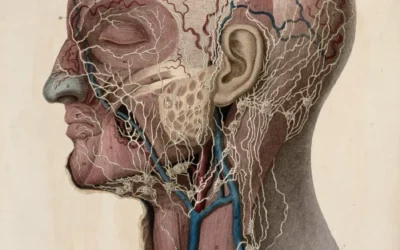






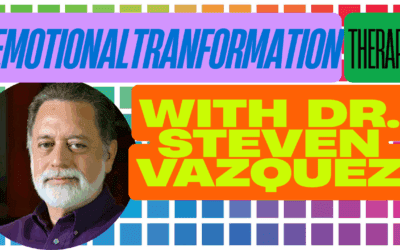









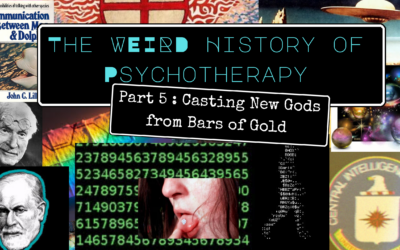
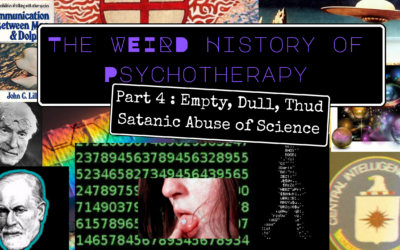
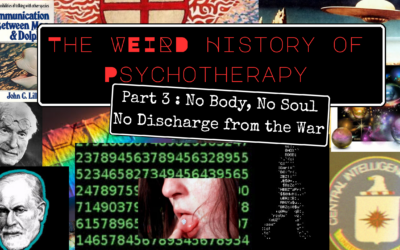
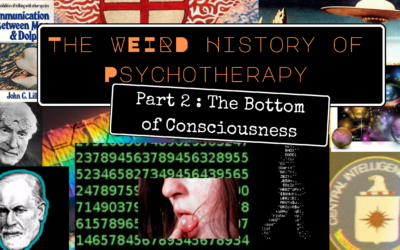

0 Comments